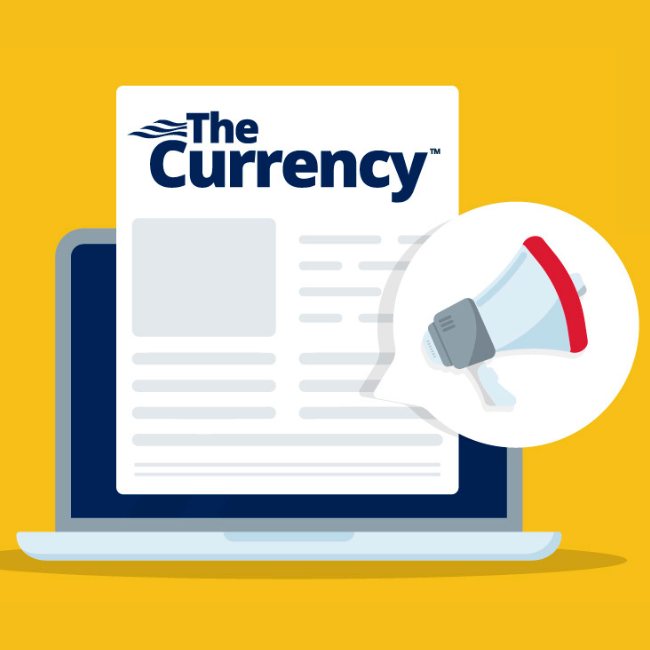Opting out is the new power move
Opting out is the new power move
More people are paying for time, privacy and peace of mind – and seeing the value add up
Opting out is the new power move
More people are paying for time, privacy and peace of mind – and seeing the value add up


Listen
·
In a world that never stops scrolling, logging off has become a quiet luxury.
Opting out — of constant connection, endless notifications, and always-on culture — isn’t just about finding peace of mind. It’s starting to carry real financial and professional value. From concierge medicine to memberships that offer access to calm, people are paying a premium for the privilege of saving time and accessing peaceful environments.
It’s not the same as taking a digital detox vacation. Opting out is a deeper shift — a deliberate decision to say no to the pressure of being always available, not just for the short-term, and saying yes to something more sustainable.
What’s the real cost of being available?
On paper, the average American spends about three hours a day watching TV and more than an hour scrolling a phone.1 But the real toll may come from the pressure some people put on themselves to always be reachable on their devices. And it’s not just their family and friends that they respond to without delay: Empower research shows that 49% of full-time employees check email while on PTO, and 42% answer them.
There's a big benefit to choosing to be more selective. Chronic stress has been linked to anxiety, high blood pressure, cardiovascular disease, and more.2 And the effects aren’t just physical. Decision fatigue, reduced focus, and diminished creativity can carry professional costs as well.3
Job stress costs U.S. companies an estimated $300 billion a year.4 When people give themselves time to relax and turn off for even a short while, it could help ease stress.
Read more: Guide for deciding when to retire
Putting a price on privacy and free time
Empower research found that 66% of Americans are willing to spend more on an item or service if it gives them more free time. In addition, people say their time is worth an average of $240 per hour.
Concierge medicine is one of the more tangible ways people are finding a way to save time when it comes to visiting the doctor, and the industry is projected to grow from $20.3 billion in 2024 to $35.8 billion by 2030.5
Private wellness spaces and members-only clubs designed for focused work or quiet recovery are also part of this movement. Member-only airport lounges are increasing in popularity with some providing sensory rooms with low lighting and soft surfaces, or with biophilic design and lush greenery to bring the natural world indoors.6 Some lounges even offer pre-flight facials, meditation, massage, or space for a nap.7
Membership-based coworking clubs, like NeueHouse in New York and Los Angeles, provide soundproof spaces, focus zones, and meditation rooms.8 Salon memberships at NeueHouse start at $3,600 annually, offering access to communal workspaces, meeting rooms, and cultural programming. Urban sanctuaries such as Nap York offer nap pods and quiet lounges for less than the cost of most hotel rooms in the city.9
Even libraries are being reimagined — from glass-enclosed pods to upgraded reading rooms designed for deep work. These opt-out environments are gaining ground as more people seek quiet on their own terms.10
Read more: A slice of paradise, fractionally owned: The shift in vacation homeownership
The return on saying no
Opting out doesn’t always mean going off-grid. Sometimes, it’s as simple as setting boundaries — shutting the laptop at 6 pm, silencing the phone on weekends, or choosing not to chase every alert that pops up.
Those small decisions can carry real weight. Preserving energy, protecting focus, and carving out room to think are important to reduce stress.
And more people are starting to recognize the trade-offs. According to Empower research, 40% of Americans would rather pay now to make life easier than save to have more money later. Empower research found that 56% would pay a premium for peace of mind, and 19% would be willing to take on debt for items or services that help them achieve it.
Get financially happy
Put your money to work for life and play
1 Bureau of Labor Statistics, “American Time Use Survey,” Accessed April 2025
2 Columbia University Irving Medical Center, “Chronic Stress Can Hurt Your Overall Health, May 2023
3 Forbes, “6 Tips To Prevent Decision Fatigue From Short-Circuiting Your Mind And Career,” July 2024
4 UMass Lowell, “Financial Costs of Job Stress,” Accessed April 2025
5 GlobeNewswire, “Concierge Medicine Market Research Report 2025,” March 2025
6 The Wall Street Journal, “Got Lounge Access? Your Jet-Lag Relief Can Start at the Airport,” March 2025
7 Robb Report, “8 Airport Lounges That Offer up Luxe Wellness Treatments While You Travel,” October 2023
8 Gotham, “This New Social Club Is Designed To Make You More Creative: Find Out How,” September 2021
9 CityNewsEverywhere, “Devoted nap-takers explain the benefits of sleeping on the job,” February 2025
10 Urban Land, “Redefining Third Spaces: Modern Approaches to Informal Urban Gathering Places,” July 2024
RO4421751-0425
The content contained in this blog post is intended for general informational purposes only and is not meant to constitute legal, tax, accounting or investment advice. You should consult a qualified legal or tax professional regarding your specific situation. No part of this blog, nor the links contained therein is a solicitation or offer to sell securities. Compensation for freelance contributions not to exceed $1,250. Third-party data is obtained from sources believed to be reliable; however, Empower cannot guarantee the accuracy, timeliness, completeness or fitness of this data for any particular purpose. Third-party links are provided solely as a convenience and do not imply an affiliation, endorsement or approval by Empower of the contents on such third-party websites. This article is based on current events, research, and developments at the time of publication, which may change over time.
Certain sections of this blog may contain forward-looking statements that are based on our reasonable expectations, estimates, projections and assumptions. Past performance is not a guarantee of future return, nor is it indicative of future performance. Investing involves risk. The value of your investment will fluctuate and you may lose money.
Certified Financial Planner Board of Standards Inc. (CFP Board) owns the certification marks CFP®, CERTIFIED FINANCIAL PLANNER™, CFP® (with plaque design), and CFP® (with flame design) in the U.S., which it authorizes use of by individuals who successfully complete CFP Board's initial and ongoing certification requirements.





